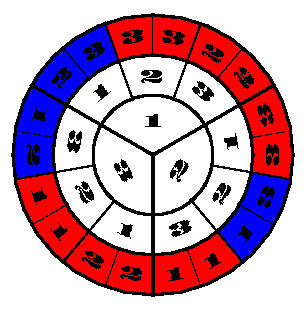
make a deal (The Monty Hall Paradox)
Suppose that in a TV show you are participating and animator gives choice of three doors: what's behind the chosen is yours. Behind one of them is a new car, behind the other two a goat. You choose one of doors, say 1, and at that time (before opening) the driver, who knows what's behind each door, opens one of the other two, say 3, and shows a goat. And I asked "do you want to change your choice (opening the door 2)?" Do you should change?
This problem is paradoxical because common sense tells us that since we know nothing about what's behind the other two doors are the same chances of winning with which they choose with the other. But it can be shown that since the driver does know that behind the doors, it should change our decision. For a discussion of this point see http://math.ucsd.edu/ ~ crypto / Monty / montybg.html .
What implications does the driver know what's behind the doors? The most important is that the two two-thirds of the time (with probability 2 / 3) has no choice: the door that opens is the prize! Why, with probability 2 / 3? Well, eventually, for example of 100 players, about 67% of players choose a losing door (behind it is a goat) and in those cases the driver will have to show the contestant losing the second door (can not show the car). That is why the participants have more chances to win by changing your election to the third option as a strategy (ie, always, as a rule). Of course, if I had chosen the car door is going to lose, but that will happen with probability 1 / 3.
0 comments:
Post a Comment